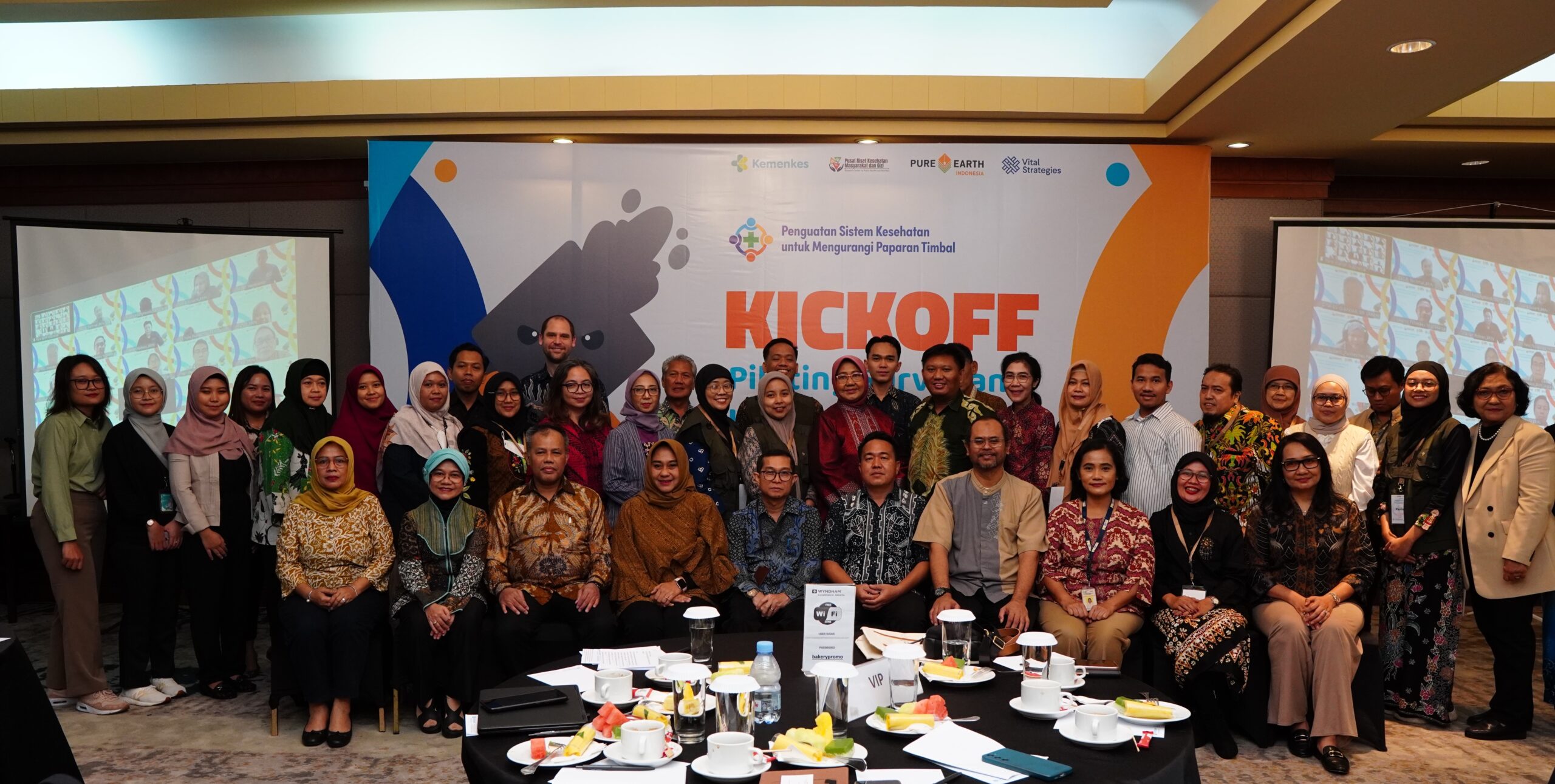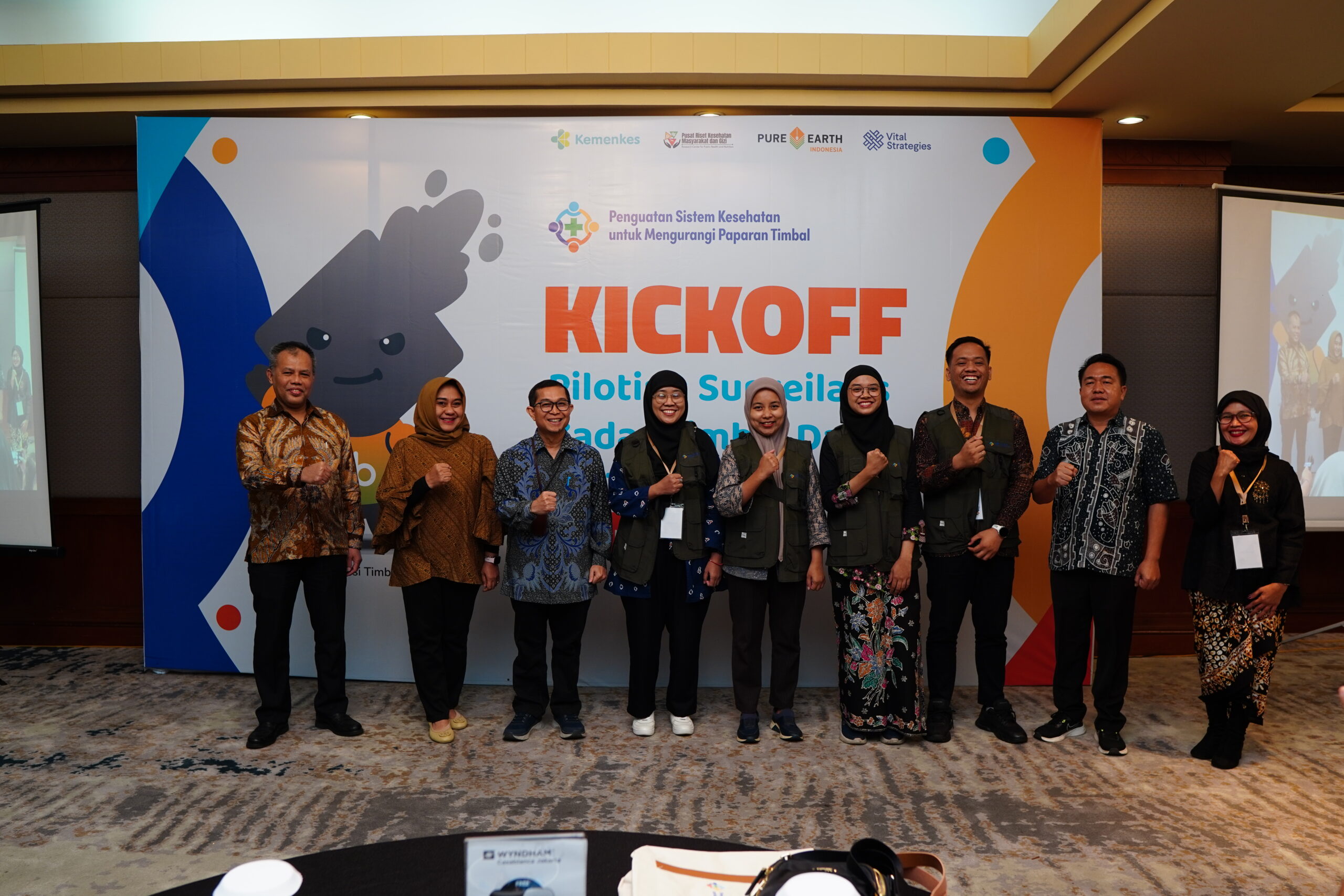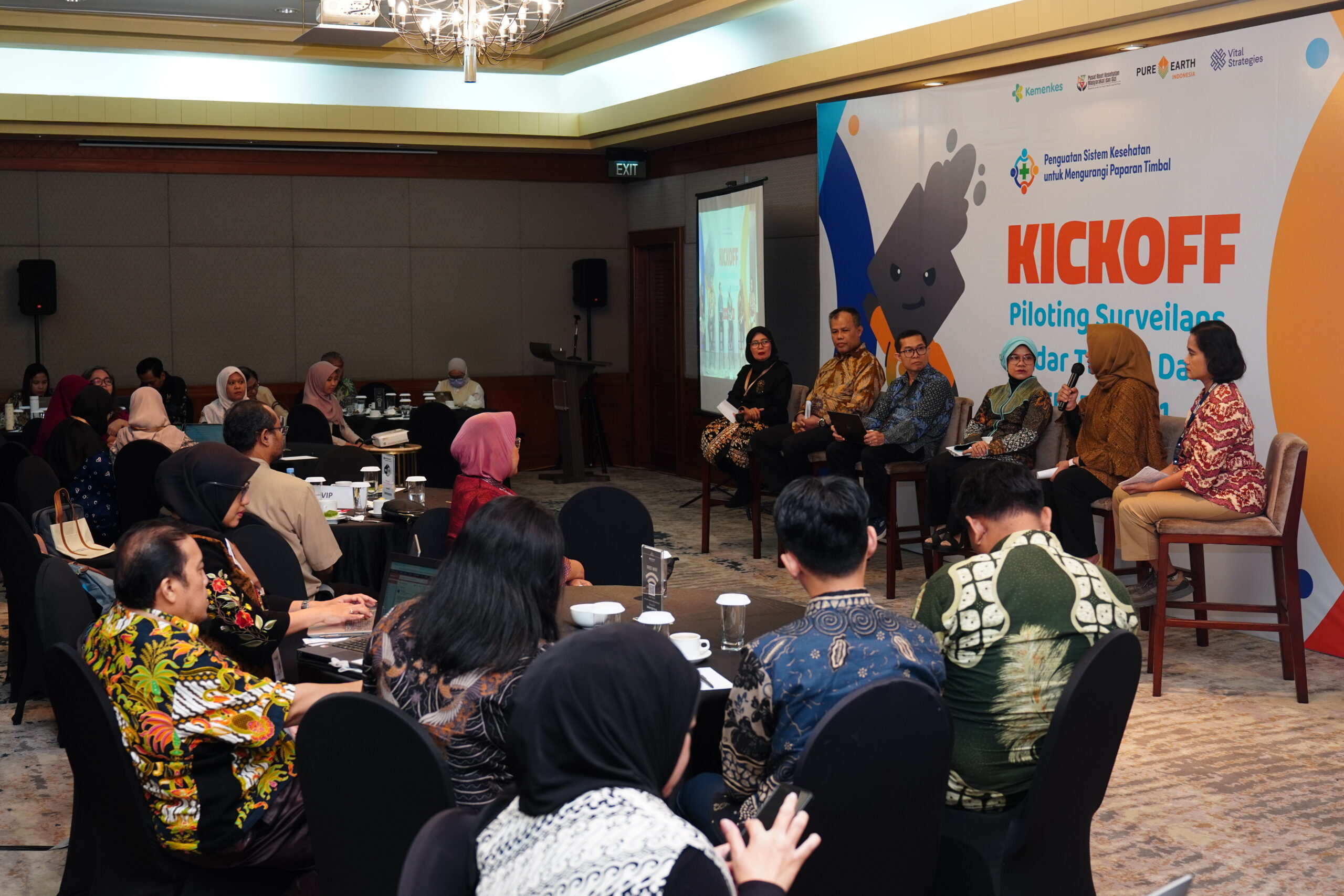
The implementation of the first phase of blood lead surveillance (BLS) piloting in Indonesia, as part of the Strengthening Health Systems to Reduce Lead Exposure project, has reached a significant milestone. Following extensive preparations since April 2024—including numerous technical meetings with the Blood Lead Surveillance (BLS) Working Group and coordination with relevant stakeholders—the Ministry of Health of Indonesia, in collaboration with Yayasan Pure Earth Indonesia, Vital Strategies, and the Research Center for Public Health and Nutrition (PRKesmaszi) of the National Research and Innovation Agency (BRIN), officially kicked off the first phase of BLS piloting in Indonesia.
“The first phase of BLS piloting will take place throughout 2025 in twelve selected districts/cities across six provinces: East Java, Central Java, South Sumatra, Lampung, Bali, and West Nusa Tenggara, as well as a pre-survey location in Tangerang Regency. The piloting surveillance includes blood lead levels (BLL) testing in children and identification of lead exposure sources through home-based assessments, which will involve sampling dust, soil, and water, as well as measuring lead levels in everyday items,” said Alfi Sina Vinci, Program Coordinator of the project, at the kickoff event held on December 13, 2024 in Jakarta.
Solidifying Commitment in A Growing Collaboration
The kickoff represents a tremendous commitment to the effort to reduce childhood lead exposure in Indonesia. The Institute for Health Metrics and Evaluation (2019) estimates that more than 8 million children in Indonesia have blood lead levels exceeding 5 micrograms per deciliter (µg/dL) which is the World Health Organization’s (WHO) recommended threshold for action. WHO emphasizes that no safe level of lead exposure exists, as even relatively low levels can harm children’s health and impair cognitive development.
“Therefore, it is imperative for us to protect our children from lead exposure. It aligns with our effort to realize our vision of Golden Indonesia 2045,” stated dr. Anas Ma’ruf, MKM, Director of Environmental Health, Directorate General of Disease Prevention and Control, Ministry of Health of the Republic of Indonesia said in his opening remarks.

Since April 2024, the BLS Working Group, led by the Directorate of Environmental Health, has held a series of meetings and received extensive input to develop the BLS piloting work plans. These plans encompass study design, location selection, methodology, laboratory partnerships, and communication strategies. As the initiative progressed, the Working Group expanded. In early December 2024, the Research Center for Public Health and Nutrition (PRKesmaszi) of BRIN officially joined as the Principal Investigator for the BLS piloting.
“The role aligns with the duties and functions of BRIN in research, development, assessment, and application, to provide evidence-based recommendations for national development,” said Dr. Wahyu Pudji Nugraheni, SKM., M.Kes., Head of PRKesmaszi – BRIN.
Mobilizing Resources for the BLS Piloting
The first phase of BLS Piloting will involve eleven BRIN researchers, 1,618 children aged 12–59 months (accompanied by their parents/guardians), 65 health workers, 65 enumerators, and 130 health cadres from selected locations. “PRKesmaszi – BRIN, Yayasan Pure Earth Indonesia, and Vital Strategies will provide technical support and assist community health centers in the selected locations, ensuring effective field implementation,” said Budi Susilorini, Country Director of Yayasan Pure Earth Indonesia, in her progress report at the event.

In addition to data collection, the first phase of BLS Piloting also includes capacity-building activities for stakeholders and public education on the dangers of lead exposure. Later stages will involve communicating test results to participants, developing policy recommendations, and disseminating findings to stakeholders.
“The BLS Working Group will later discuss strategies for disseminating the surveillance results across the six provinces. These findings will serve as a baseline for the Ministry of Health in making policies and determining the next steps to address the health impacts of lead exposure in Indonesia,” added Edwin Siswono, Epidemiologist at Vital Strategies.
Learn more about the project here.





